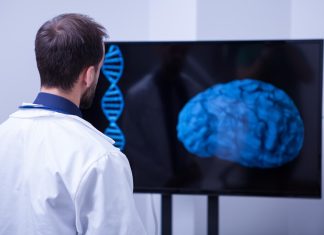The laboratory will develop and implement AI methods for creating new materials and medicines based on the analysis of chemical, biological and medical data.
It was opened at the Engineering Chemical Technology Center (ECTC). The new division will use AI to develop new medicines and simulate the properties of chemical compounds. For example, scientists will create methods for predicting the physico-chemical properties of chemical compounds and algorithms for analyzing quantum patterns in atomic and molecular physics, including macroscopic quantum effects. They will conduct research in the field of chemoinformatics (chemical informatics, molecular informatics), bioinformatics at the levels of DNA, cells and tissues, and develop digital assistants and intelligent decision support systems for chemical technologies.
Artur Kadurin, head of the AI in Life Sciences Research Group at the AIRI Institute and scientific director of the new laboratory, noted during the event that modern life sciences and materials science generate unprecedented amounts of data. The laboratory’s task is to develop and apply AI methods to analyze and combine this heterogeneous information at the intersection of chemistry, biology, and physics.
“Accelerating the development of therapeutic drugs and functional materials depends on our ability to predict the complex properties of substances and their interactions. We will focus on creating computational approaches that will make it possible to effectively use the potential of artificial intelligence technologies to solve these problems. In turn, experts from TSU will provide the experimental validation of the proposed methods,” said Artur Kadurin.
According to Vyacheslav Goiko, director of the TSU Institute for Big Data Analysis and Artificial Intelligence, the introduction of AI into the work of chemical scientists and molecular engineering specialists is a fundamental change in the very logic of scientific research.
“The future belongs to those who learn how to use AI to accelerate scientific research and generate new knowledge. And this future is being created here in Tomsk today. These are colleagues from the AI Institute, recognized leaders in the field of fundamental and applied AI research. Our team has extensive experience in conducting research and applied developments based on the Cyberia supercomputer. ECTC provides expertise in synthesis and analysis of substances and in scaling of chemical processes,” said Vyacheslav Goiko.
Unique ECTC plants will be used for the projects of the new laboratory. For example, the center’s scientists are currently developing Russia’s first AI system for actual production in low-tonnage chemicals.
“The main goal is to accelerate the production cycle, eliminate the human factor to increase the accuracy and safety of the process, which, in this case, is the production of sodium tartrate. AI helps predict changes in parameters and clearly analyze the consequences of changes, which is important in the continuous process of developing a substance,” said Aleksey Knyazev, Director of the ECTC, Acting Dean of the Department of Chemistry at TSU.




